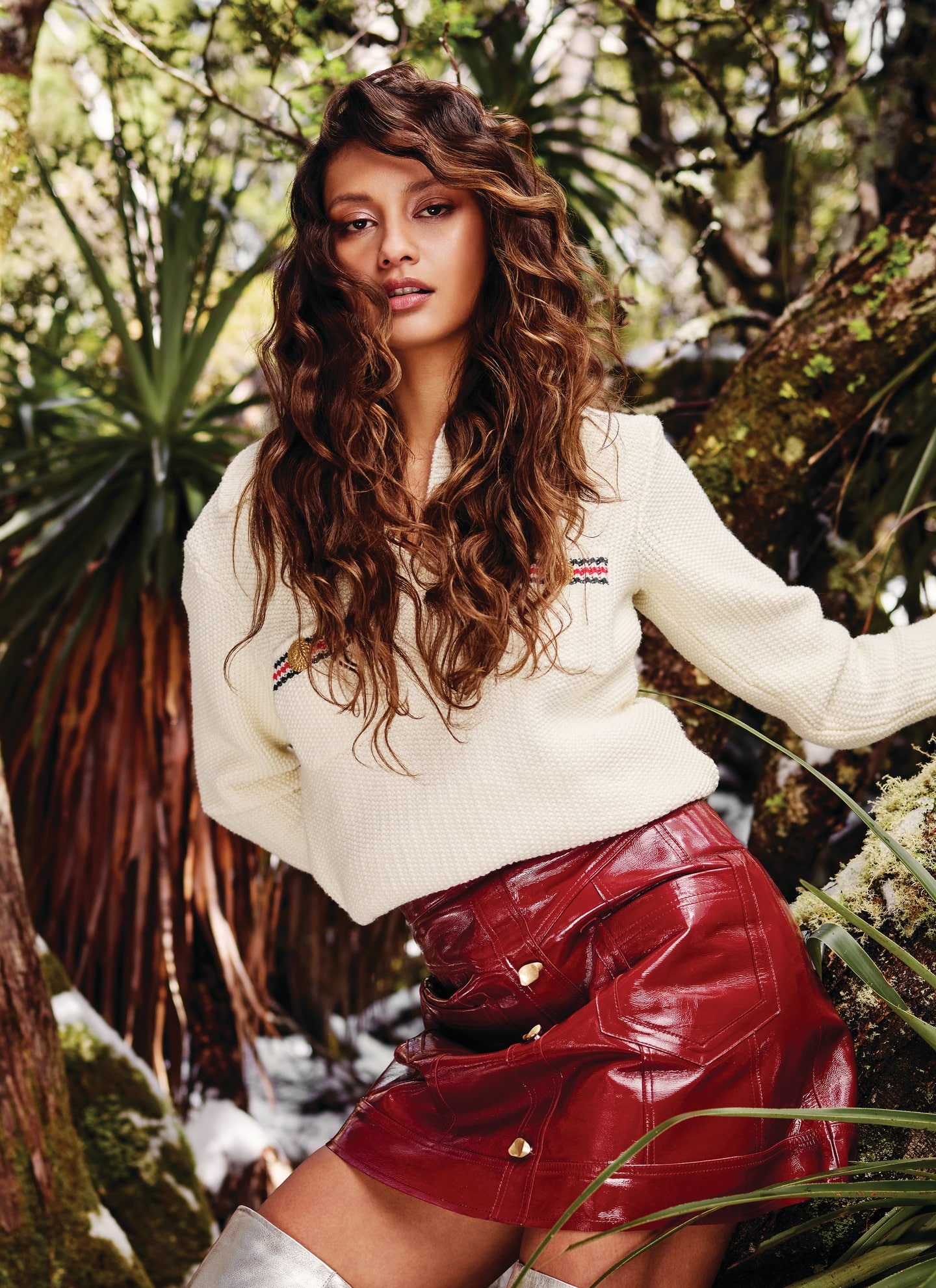Expert Tips On Mature Hair Care
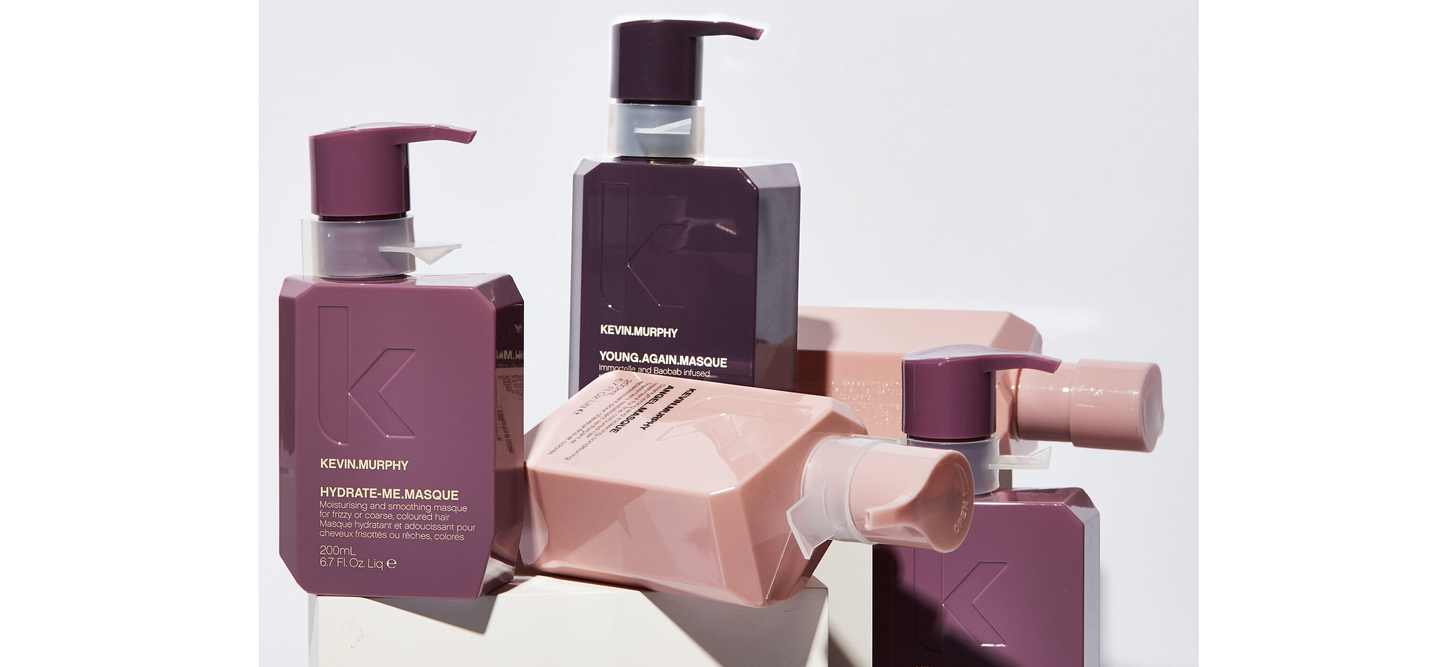
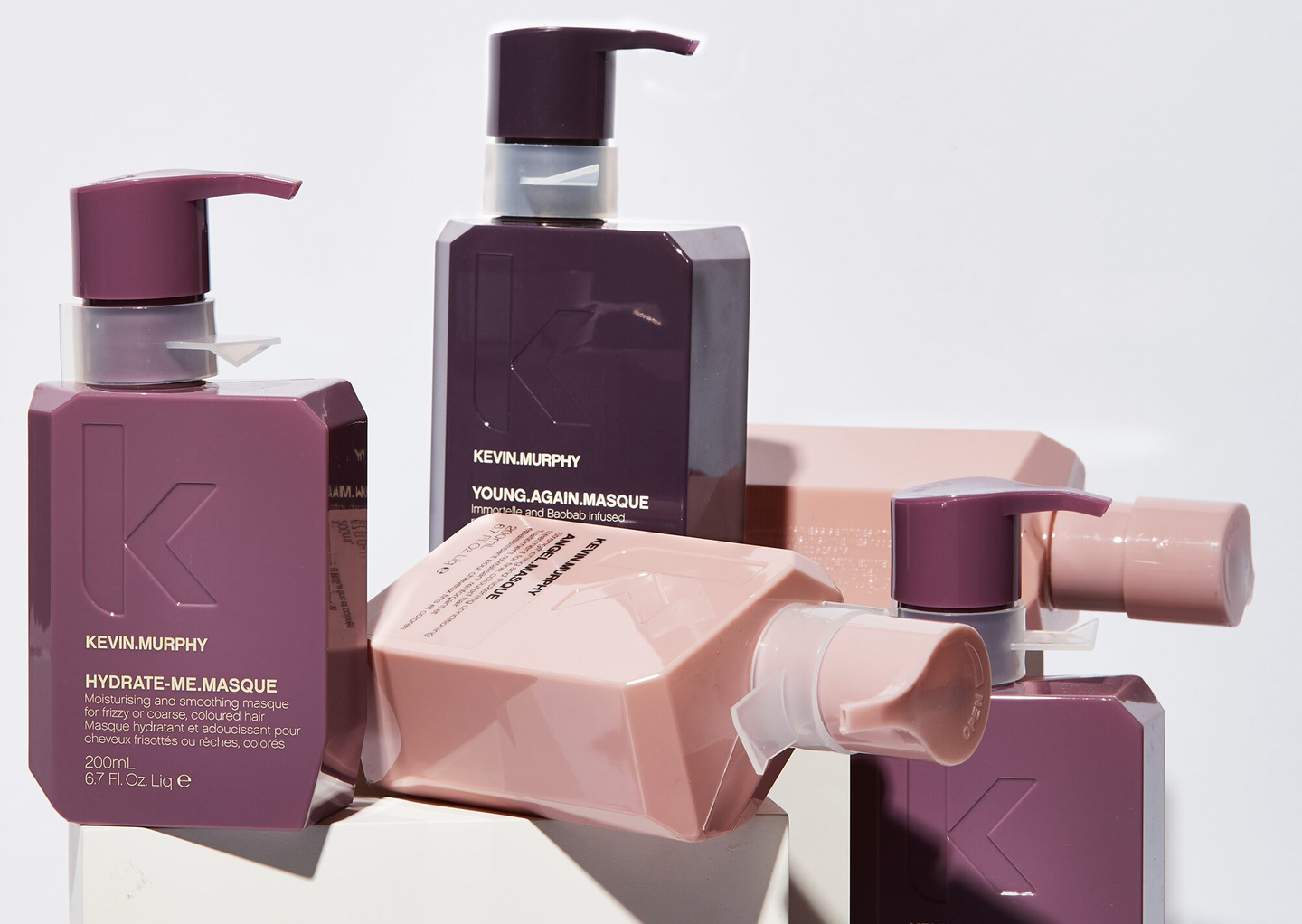
Remember that time you found your first grey hair? We’re sure it was a horrible moment when you were suddenly reminded of your age… whether it happened in your teens, 20s, or 30s all is not lost! For some people, this moment occurs later in life, while others can experience greying much sooner. Although this may happen at random and you might not find another grey for years, depending on your lifestyle it may be a sign from your body telling you to slow down and take extra care of yourself. Luckily, ageing hair has as many options as any other hair type. While facing the inevitable change can be scary, expert tips on hair care can help you accept and embrace what’s ahead of you!
How does our hair age?
Did you know that a hair strand can live up to seven years before falling? Every single strand on your head goes through the same hair cycle that eventually ends. However, besides a “lifespan” of a strand, there is an overall cycle of hair growth that happens with age. The first and most obvious sign is the change of colour and appearance of greys. Such alteration generally occurs in the 30s, after the follicle produces less melanin than before. Still, it’s not unusual for hair to go grey much sooner than that! Or, if you’re blessed with lucky genes, greying can gradually appear, and ashy hair appearance is much slower. Either way, ageing takes a toll on hair and scalp, slowing down sebum glands and affecting the thickness, texture, and overall hair state. In time, strands feel stiffer, coarse, dry, and brittle. It’s a fact of life!
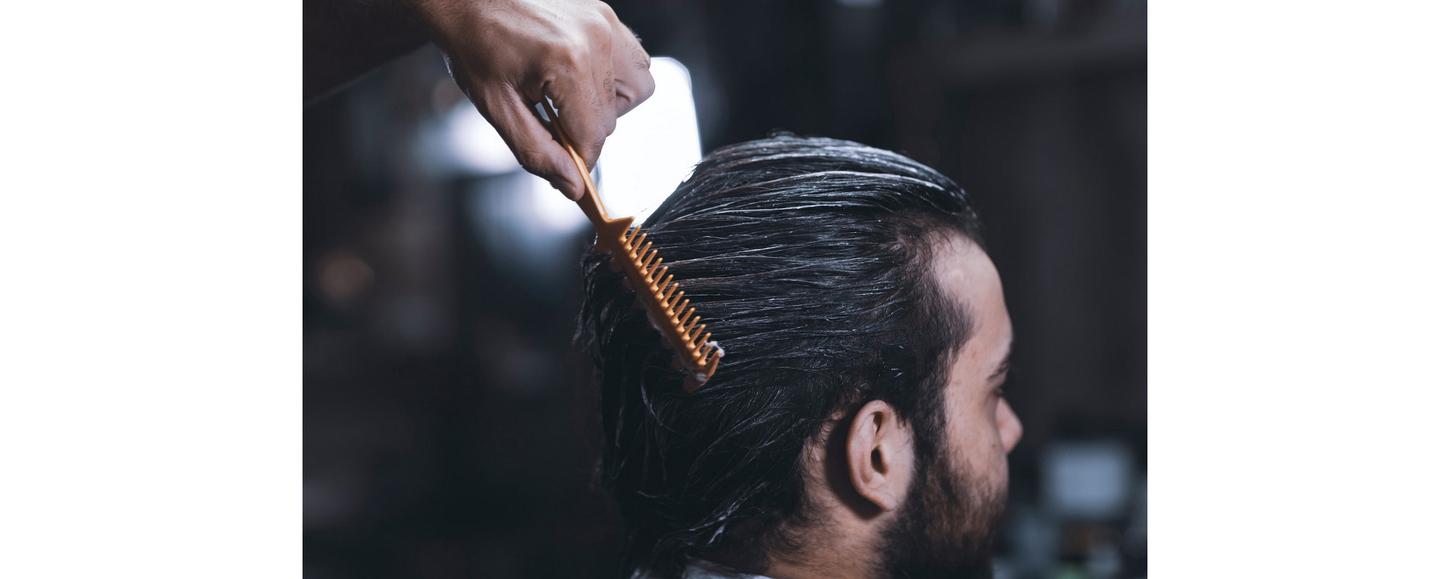
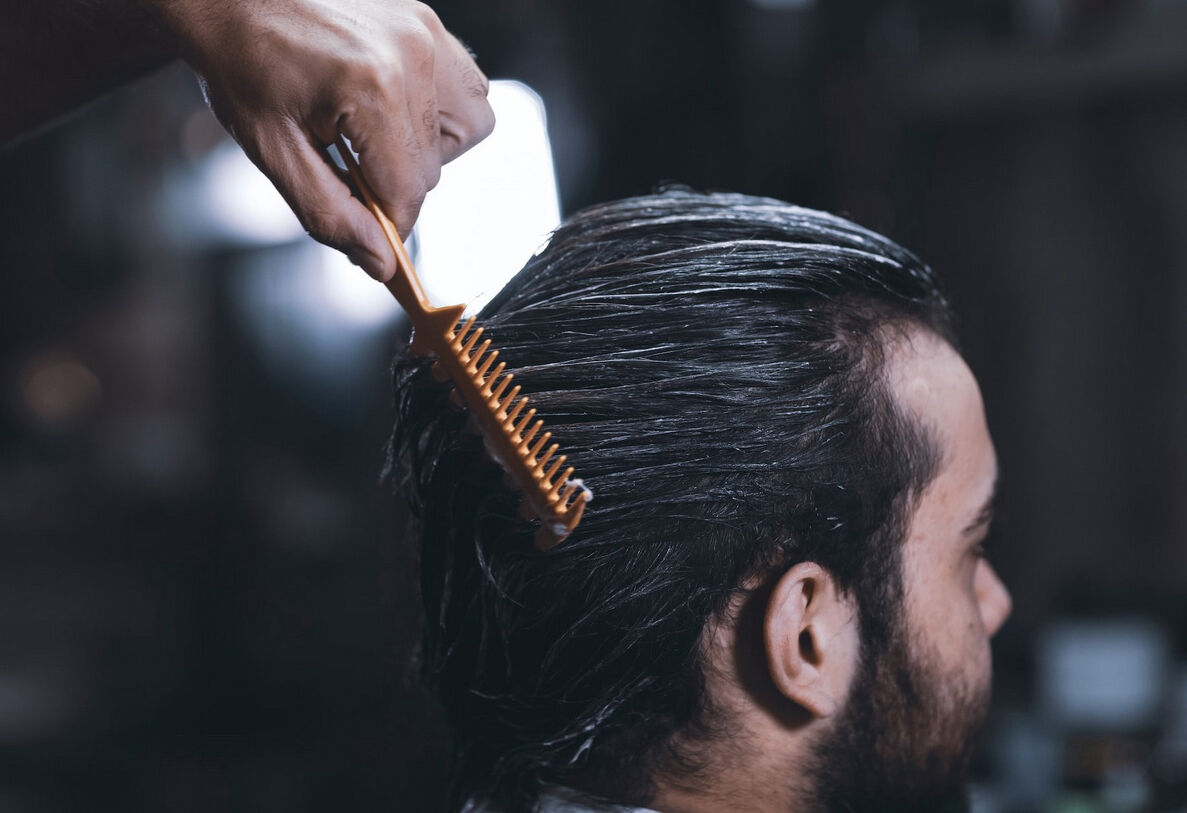
According to some scientific reports, greying patterns depend on onset age, gender and habits that affect our health
Cut your hair some slack!
You might feel and look young, but your age dictates the biological processes in your body, including follicle function. Even when using high-performing hair products, try to avoid overstressing your hair as you may have done before. All the styling, dyeing, chemical treatments, and improper maintenance leave traces on your hair. This includes the frequency of your hair washes! Sometimes, a simple habit can do way more damage than you’d imagine. And since your hair ages with you, you need to have a different approach to mature hair care. Your focus should be on avoiding damage and preserving your best features.
Relax the scalp with brushing and massages
Since hair gets thinner and more delicate as we age, it’s vital to treat it gently. Aggressive haircare products are not the only things that harm your hair. Since mature hair experiences more frequent thinning and shaft brittleness, improper maintenance and brushing can damage it significantly. You need to use brushes that are gentle on the hair and scalp. In addition, you can massage your scalp with the tips of your fingers and pamper your hair as often as you can! It’s not only beneficial for scalp stimulation, but it can be quite relaxing as well.
Moisturise frequently
It’s no secret that hair’s ability to keep moisture and elastic properties slows down the older we get. That’s why you need to do everything possible to satisfy its “thirst”. The ideal mature hair care regimen needs a restorative softening shampoo that strengthens and gives back youth to your strands, followed by deep conditioning and rejuvenating masque. When struggling with ageing hair, there is no such thing as overhydration. With the right care and commitment, there is no hair that can’t be restored. But in case your hair suffers from excessive dryness and dullness, investing in salon, professional treatment is the smart thing to do.
Boost your aging hair from within
The secret to healthy hair is not only to nourish your scalp and shaft on the outside but the inside as well. Blood vessels at the base of the follicle are in charge of “feeding” your hair. Enriching your diet with vitamins and minerals that promote the growth and well-being of the scalp is vital! Adding more fatty acids to your diet, such as Omega-3 and Omega-6, is more than beneficial for your hair and body. Besides high-quality protein that boosts hair growth, fatty acids have a large amount of vitamin D, B, and selenium. These nutrients play an essential role in fighting bone inflammation, dementia, and depression while lowering the risk of cardiovascular diseases.
Eliminating stress from your life will benefit not only your hair but also your overall well-being
Focus on volume and lustre
Shedding is a normal process of the hair growth cycle. After the strand has reached its peak, it falls off, and growth reoccurs. However, more frequent thinning often follows greys and other issues that appear later in life. Only this time, the follicle doesn’t regenerate. Our body processes nutrients less efficiently, so losing your voluminous hair tends to follow along. Even though it’s overwhelming to think about it, taking steps to slow down the process and work on your hair lustre and volume should be your priority. Use products that densify and plump the volume, but also stimulate the scalp and strengthen the roots. You don’t need to say goodbye to your young hair! It’s almost impossible for hair to age gracefully without the right help from the right regimen.
Reduce the frequency of hair washes
Our skin and hair work in amazing ways. Not washing hair often leads to sebum accumulation that causes inflammation and different scalp issues, while overwashing with shampoos strips the natural scalp oils that protect the skin. Therefore, it’s important to find the perfect balance when washing your hair. Still, our body works differently when ageing. After you turn twenty years old, sebum production slowly decreases. This is because hormones regulate sebum glands. Hormonal function disrupts later in life due to different medical and natural causes.
You’ve probably noticed you need less frequent washes than before. Perhaps it’s time to listen to your hair and reduce the weekly shampooings. If you want to stick to your routine and maintain the same level of freshness all the time, try dry shampoos between the washes. Moreover, if you’re struggling with coarse and dry strands, perhaps opt for a dry rejuvenating conditioner instead.
Accept and embrace the changes
The only thing we can fight forever but never beat – is time. While causes of hair aging can be hormonal, biochemical, genetic, and environmental, there are many things you can do to slow down the transition and strengthen and rejuvenate your hair. A proper mature hair care routine will minimize the effect of ageing and conceal “wear and tear” caused by products and styling. Whether you start turning grey in your 20s or 50s, accept that you’re going through a natural process and embrace the changes! The first couple of greys may seem like the end of the world to you, but remember that millions of women are deliberately dying their hair to achieve ash tones. It’s safe to conclude that grey is more than ok!


